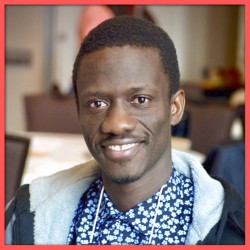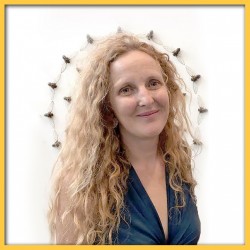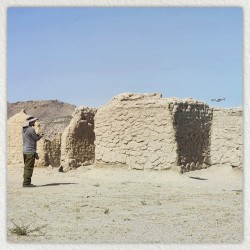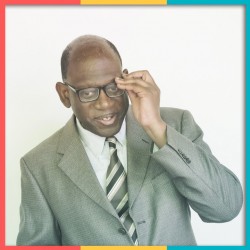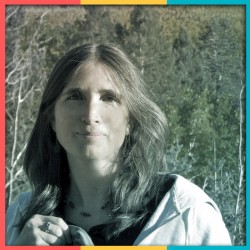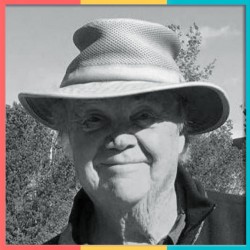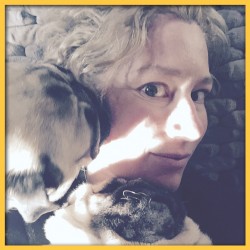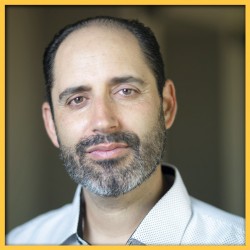GATHERING OF NATIONS POWWOW
Fri, Apr 26, 2024, 12:00am
GATHERING OF NATIONS POWWOW
Fri, Apr 26, 2024, 12:00am - Sat, Apr 27, 2024, 11:59pm
April 26th and 27th, times TBA (Mid-Morning—Early Afternoon)
Expo New Mexico State Fair Grounds (ADDRESS)
Hosted by Gathering of Nations Limited
Admission $25 (TICKETS)
Learn, share, and enjoy a truly unique international cultural exchange. The Gathering of Nations Powwow is hosting an International Cultural Exchange with Aboriginal Australians and individuals from tribes in New Mexico and across the United States. This is an opportunity for the public and all groups to share and participate in deepening the understanding of shared First Nations cultural practices, social issues, sacred land protection and other topics.
Join our International Speakers:
Nicole Brown — Larrakia First Nations of Australia
Amber Shepard — Larrakia First Nations of Australia
Jaynaya Winmar — Noongar/Balladong Tribes of Western Australia
Matthew Bonson — Gurindji, Jaywon & Torres Strait Tribes of Northern Territory, Australia
Dante Rodrigues — Tiwi Tribe of Northern Territory, Australia
Jahdai Wilson-Vignoa — Tiwi Tribes of the Northern Territory, Australia
Shannon Motlop — Indigenous from Northern Territory, Australia
More Speakers TBA
More information will be available at www.GatheringOfNations.com or contact project director, Melonie Mathews at: Melonie@GONMail.com.
Open to the Public at the Gathering of Nations Powwow – Admission for the event $25.
EXPERIMENTS IN CINEMA V.19.8
Tue, Apr 23, 2024, 12:00am
EXPERIMENTS IN CINEMA V.19.8
Tue, Apr 23, 2024, 12:00am - Sat, Apr 27, 2024, 11:59pm
In person — April 23rd-27th, Virtual Viewing — May 4th-18th
Guild Cinema (ADDRESS)
Hosted by Experiments in Cinema
General admission $10 per day
Experiments in Cinema is an annual, transnational festival celebrating the current trends and history of international cinematic experimentation. Experiments in Cinema is a non-competitive festival produced by Basement Films. This year we are celebrating our 19th anniversary with a host of unique screenings (100 films from 30 countries). EIC also features special lectures, discussions and curated programs. The goal of Experiments in Cinema is to bring the international community of moving image artists to New Mexico to then inspire a new generation of movie makers to recognize the value of their media-voices and create films in ways we never imagined possible.
For more information and a full schedule, click here.
COMMUNITY IN CONFLICT: THE LEGACY OF THE SANTA FE INTERNMENT CAMP MARKER
Sat, Apr 20, 2024, 1:00pm
COMMUNITY IN CONFLICT: THE LEGACY OF THE SANTA FE INTERNMENT CAMP MARKER
Sat, Apr 20, 2024, 1:00pm - 4:00pm
April 20th, 1-4pm
Various Locations
Hosted by The New Mexico Japanese American Citizens League and the New Mexico History Museum
FREE to the public
The New Mexico Japanese American Citizens League (NMJACL), in partnership with the New Mexico History Museum, presents a symposium on the Santa Fe Internment Camp and its historical Marker. The program includes: 1) screening of the documentary film “Community in Conflict,” followed by an audience talkback with the director, Claudia Katayanagi; 2) dramatizations by the readers theater group, JACL Players, of stories from inside and outside the barbed wire of the Santa Fe Internment Camp and the opposition to the creation of a memorial to the camp more than 50 years later; 3) panel discussion on New Mexico’s efforts to preserve the legacy of Japanese American incarceration. Panelists include members of the 1999 Santa Fe Internment Camp Marker committee, the daughter of a Bataan Death March survivor, and city councilors present at the vote on the Marker. They explore both sides of the controversial Marker issue and parallels to current times.
For more information please contact project director Nikki Louis at: LouisNikki9@gmail.com.
*CANCELED* RARAMURI: THE FOOT RUNNERS OF THE SIERRA MADRE
Sat, Apr 20, 2024, 11:00am
RARAMURI: THE FOOT RUNNERS OF THE SIERRA MADRE
Sat, Apr 20, 2024, 11:00am - 12:00pm
*CANCELED*
Presented by Diana Molina
April 20th, 2024, 11am. Hosted by Friends of Columbus Library (ADDRESS)
Raramuri, Uto-Aztecan for Tarahumara, are among the world's best runners from lives spent traversing the canyon walls and plateaus of the Sierra Madre Occidental in northern Mexico. In a personal narrative complimented by anthropological, ethnographic and scientific research, Diana Molina will feature the exceptional Raramuri culture, discuss the impact of modern society on their lifestyle and highlight the amazing expanse of the canyon environment with stunning photographs taken while living among the tribe for extended periods of time.
BOARD MEETING SCHEDULED FOR APRIL 20 — ATTEND ONLINE
20 Apr 2024
The Board of Directors will convene for an online meeting on April 20, 2024. Whether you’re looking to stay informed or connect with the community and leadership, you are welcome to attend. For those interested in attending, we kindly ask you to express your interest by contacting our Executive Director, Brandon Johnson at ExecutiveDirector@NMHumanities.org. You will receive all the necessary information, including the online meeting link and agenda in advance.
AFROMUNDO FESTIVAL: MAROONS, REBELS, DREAMERS, AND VISIONARIES
Sat, Apr 13, 2024, 12:00am
AFROMUNDO FESTIVAL: MAROONS, REBELS, DREAMERS, AND VISIONARIES
Sat, Apr 13, 2024, 12:00am - Sat, Apr 20, 2024, 11:59pm
April 13th through April 20th
Various Locations
Hosted by AfroMundo (WEBSITE)
FREE to the public
Join the AfroMundo team for a weeklong, arts and humanities festival that explores the histories, traditions, literature, rhythms, cultural practices and ethnic and racial complexities of Latinidad.
Narratives are foundational to history, religion, culture, class, race; as well as to political, economic, educational, environmental, health policies and more. Yet the narratives of Afro and of African Americans have historically been overlooked and are in danger of being erased from libraries and curriculums. AfroMundo’s idea is that nuanced humanities conversations can and should take place within community.
This year's Festival themed Maroons, Rebels, Dreamers and Visionaries, employs literature, folk traditions, films, panel discussions, and demonstrations of religious and cultural practices to share diasporic narratives. This year’s programs highlight the diverse heritage, traditions, histories, aspirations and current conditions of life for Black peoples in Columbia, Costa Rica, Jamaica, and the USA. The festival seeks to promote a greater understanding of our shared humanity. All panels include question and answer sessions. Programs are in humanistic dialogue with others in the series to provide multifaceted perspectives.
For a comprehensive overview of the festival's array of events, we invite you to visit AfroMundo Festival 2024 and encourage your swift registration, as these events, while free and open to the public, are renowned for reaching capacity well in advance due to their wide appeal. Among the list of diverse programs and scholars, the festival concludes with distinguished musical artist Afro-Colombian singer and Grammy Nominee, Nidia Gongóra. You won't want to miss it or any of these events!
FROM GHANA TO NEW MEXICO’S HISTORY DAY, NHD Judge Kwesi Felix Boafo Shares Lessons Learned and Navigates History's Pivotal Moments.
1 Apr 2024
History Day judges play an important role in the success of our History Day program, serving not only as evaluators of student projects but also as mentors and educators who inspire the next generation of young historians. They are fundamental to the program, offering their time and knowledge to mentor and provide constructive feedback to students participating in the program. This support not only helps students refine and improve their history projects but also fosters a deeper understanding and appreciation for historical research and storytelling. Their constructive feedback, and encouragement are essential in helping students refine their research, analytical, and presentation skills. It's through this collaborative effort between volunteers and participants that History Day continues to be a transformative experience for young historians.
NMHC recently had the opportunity to connect with History Day judge Kwesi Felix Boafo, whose unique journey and experience shine a light on the role volunteers play in this program. In this interview, we explore the challenges, insights, and rewards that come with navigating young historians through their explorations of pivotal moments in history.
NMHC: Tell us a little bit about yourself and your background in history or education?
I am currently a biology graduate student at Eastern New Mexico University. Before coming to the United States of America for graduate studies, I used to work as a physiotherapy assistant for two years after my college degree. Although I have been a biological science student since my college years, I have always had a strong interest in history and culture. I remember taking part in cultural events in my junior high school and primary school. I had taken some courses outside my biology background, such as sociology and African Studies, in my college years. These courses have exposed me to historical events in Africa and other parts of the world. I have also taught myself history by reading old newspapers and old magazines from the archives of a small library in my hometown, Tsito, in the Volta region of Ghana. I can also say I learned from the older generations around me. I remember they used to tell me stories about Osama Bin Laden, World War II, the Independence of Ghana, and the colonization of Africa. I think all these have prepared me for life.
NMHC: As a first-time judge, what inspired you to volunteer for History Day?
As someone who has an interest in the history and culture of people and as a non-immigrant in the United States, I was thrilled to be part of History Day as a judge to learn from these intelligent young ones and their interesting projects. I do not believe there is any better place to learn about the history of the American people than this place or occasion. More importantly, I wanted to come and learn and have a first-hand experience of how Americans organize such a program like this and learn so that when I return to Ghana after my studies, I can introduce a few of the things I will learn back home.
NMHC: Is there a particular period or event in history that fascinates you more than others? Why?
There are so many fascinating periods in history, but the most fascinating one to me is the global effects of the World Wars, particularly World War II. The war made me see the rise and collapse of totalitarian governments, technological developments in the form of war aircraft, and the individual tales of bravery of soldiers, sacrifice, and resilience of many nations — especially the people of Japan after the Hiroshima and Nagasaki bombings.
NMHC: Reflecting on your first experience as a History Day judge at the central regional contest in Albuquerque, what are some of the highlights or standout moments for you?
I had a lot of beautiful moments in the central regional contest, but my standout moment was the ingenuity displayed by these young ones in their various projects. I must confess I was amazed by the deep-thinking ability of these young ones. Should I say I have seen more than I was anticipating? I think so.
NMHC: In your opinion, what qualities make a History Day project stand out?
The things that made the History Day project unique are numerous, but my few takeaways are (a) the requirements that students place their topics in their historical context, (b) the guidance provided for the right usage of Artificial Intelligence in executing projects and (c) the integration of different perspectives into the project makes the History Day projects unique.
NMHC: How do you think participating in History Day benefits students?
I envy these young ones. If I had the opportunity to participate in a program such as this in my early years, I believe I would have been a better person than my current self. The full impact of this program cannot be underestimated. Participating in a program such as History Day is honing the creative and analytical skills of these young ones. More importantly, through this program, we are producing a history-literate generation. There is a popular saying that “If you don't know where you’ve come from, you don't know where you're going.” We can confidently say that our future is secure because our children know where to go when we, the adult generations, are no more.
NMHC: What advice would you give to students preparing for History Day?
My advice for students who want to participate in History Day is to go to the National History Day website and familiarize themselves with the various resources available on the website before they start their project. The National History Day Rule Book (June 22, 2020 edition) would be of great help. Familiarizing oneself with this would help the student to know what to place and what not to put into their project. Lastly, I suggest that students start their project early. By so doing, there will be more time to correct what needs to be corrected, and this will go a long way in helping the student put together a unique project.
NMHC: What key insights or lessons did you take away from your initial judging experience?
I have learned a lot as a first-time judge, but the two most important lessons I have taken from this contest are (a) never underestimate the intelligence of young ones. I have realized that they know more than we think they know, and (b) teamwork with co-judges is what can make your work easier as a judge. I have co-judges who have more than 10 years of experience in this service. In my judging moment with my co-judges, I remembered Isaac Newton saying: “If I have seen further, it is by standing on the shoulders of giants”. Yes, I had giants around me.
NMHC: As you potentially look forward to participating as a judge at the state finals, how will you prepare differently this time around?
As I look forward to the state finals contest, I hope to take more time to go through the entries of the contestants, read my judge guidebook to familiarize myself with the judges' guidelines more, and lastly, have a conversation with my co-judges before the contest. I believe by so doing, I would be more prepared to judge the contest than before.
NMHC: Are there any aspects of judging at the state level that you anticipate will be different or more challenging compared to the regional contest?
In human society, as you climb higher you will expect contests to become more competitive, and I am anticipating a more competitive contest in the state finals. Apart from this, I am not expecting any major difference.
NMHC: How do you hope to contribute to the student's learning and experience at the state finals?
In the state finals contest, I will strive to familiarize myself more with the guidelines and rules of any of the categories I will be judging. Also, I hope to create a more friendly and relaxed environment for the students to feel more comfortable in expressing themselves. I hope to do my very best to avoid any topic bias tendencies and also write more constructive feedback to the contestant which will guide them in their future work.
NMHC: Can you share how this experience has impacted your perspective?
Projects for History Day usually need a great deal of study, critical source analysis and information synthesis into a cogent story. Being a judge has taught me to emphasize how important it is to teach historical analysis and research methods to pupils so they can become knowledgeable and astute readers of the past.
NMHC: Based on your experience, what advice would you offer to first-time judges who may be participating in future History Day contests?
My advice to a first-time judge will be to familiarize themselves with the judges' guidebook well before the contest and read through the entries of the students before coming. By doing this, I can assure you that you will be 90% ready to be a good judge before the day and the rest of the 10% will come from learning from co-judges and students as the contest progresses.
NMHC: What do you wish you had known before your first-time judging?
In all honesty, I wish I had known that judging people’s work and determining the winner of a contest is such a difficult job. The difficulty came from determining winners between two good people with just tiny differences when you knew that both students deserved to win. It is such a difficult thing to do.
NMHC: Why would you recommend others to consider serving as judges for History Day or similar educational initiatives?
The experiences are great, the lessons to learn are numerous, and the friends you make from this initiative can be long-lasting. These will be my reasons for recommending this initiative to someone.
NMHC: Can you name a 'turning point' in history that fascinates you, and why do you think it's important for students to study these moments?
The enactment of the Immigration and Nationality Act of 1965, popularly referred to as the Hart-Celler Act, marked a momentous shift in the history of American immigration laws. With far-reaching effects on the country's demographic makeup, this legislation fundamentally changed U.S. immigration policy. U.S. immigration policy was mostly based on national origin quotas set by the Immigration Act of 1924 before the Immigration and Nationality Act of 1965. Immigration from Asia, Africa and Southern and Eastern Europe had been severely restricted by these quotas, which greatly favored immigrants from Western and Northern European countries. At the time, discriminatory sentiments were common, and the system was created to preserve the current racial and ethnic makeup of the United States. A preferential system centered on family reunion and the hiring of skilled workers took the place of the national origin quotas, which were eliminated by the Immigration and Nationality Act of 1965. Students engaging in this topic will help them to appreciate the population diversity of America and recognize the important contributions of various races.
NMHC: As our interview comes to a close we'd like to thank Kwesi for sharing his insights and experience with us. We also extend a heartfelt thanks to everyone who has been a part of our History Day program, volunteering in different capacities and serving as judges. Kwesi's story is an example of the vital role volunteers play in enriching the History Day program and our young historians' path to academic success. To learn more about the New Mexico National History Day program, please contact New Mexico State National History Day Coordinator, Stephanie Wilson at: historyday@nmhumanities.org.
STAFF UPDATE: ANNOUNCING DEPARTURE
1 Mar 2024
As we bid farewell to our Chief Information Officer Ellen Dornan, the words that come to mind are “impossible to replace.” Ellen, who joined the New Mexico Humanities Council as Program Officer in 2016, worked with the Council as a consultant since 2001 providing IT support and training, serving as a National History Day judge and developing the Centennial Online Atlas of Historic New Mexico Maps.
Her journey with us here has been marked by significant personal and professional growth, culminating in her role as Chief Information Officer. She has had tremendous impact not just on the Council’s work but also in communities across the state. Her dedication and innovative spirit propelled the NMHC to new heights, and she has worked tirelessly to make the humanities accessible to all.
Throughout her time with us, she has led innovative projects such as Augmented Humanity, a podcast series that brought together artists, storytellers and academics to explore the intersection of technology and the humanities in New Mexico, nationally and internationally. Her ability to identify and forge partnerships also played a pivotal role in facilitating the archival project Manitos Community Memory Project; and she secured significant funding from the Bureau of Land Management (BLM) for the creation of Southern New Mexico Heritage, an online tour of ancient archaeological sites and modern cultures of southeast New Mexico. These projects and programs represent just a small part of the breadth of her contributions.
We are immensely grateful for her contributions and leadership. While we will miss her presence and vision, we are pleased to tell you that this is not a final goodbye. Ellen will continue to be part of the NMHC by serving as a consultant. We hope you will join us in thanking Ellen for her dedication and hard work over these past years. If you’d like to reach out to her personally, she can be reached at Ellen@QueenEllen.com.
CULTURAL SITEs
1 Mar 2024
The New Mexico Humanities Council (NMHC) is pleased to announce the Cultural SITEs (Scans for Interactive 3D Experience) project partnership that began in 2023 with Northrop Grumman’s Technology for Conservation (T4C). Cultural SITEs is a digital humanities initiative that preserves New Mexico’s historic sites in the form of digital models that can be used for immersive experiences and as research materials. NMHC was awarded an additional $30,000 grant from the Northrop Grumman Office of Corporate Citizenship to continue Cultural SITEs this year.
Cultural SITEs integrates technology and humanities research by using photogrammetry (image-based modeling) and LiDAR (Light Detection and Ranging) to forge inroads in digital preservation of historic sites throughout New Mexico. The T4C team supplied both the technology and expertise to scan two significant sites—Fort Selden in Radium Springs, N.M., and Sevilleta Pueblo in La Joya, N.M.
This grant award will extend the Cultural SITEs project by conducting additional scans of New Mexico’s historical sites, create interactive exhibits to animate the 3D models, and leverage these digital assets as educational resources for university students. This expansion not only aims to preserve New Mexico’s rich heritage but also to enhance public engagement and academic research.
WATCH: SITEs Unseen, Preserving New Mexico's Culture
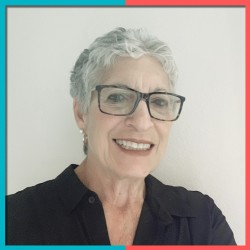
"Bridging the Cultural Gap: An Honest Discussion About Gun Violence"
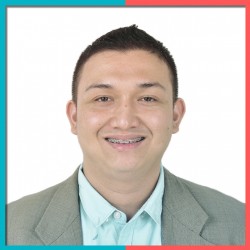
"Diversity, Resilience, Inclusivity: The Filipino Identity in a Foreign Land"
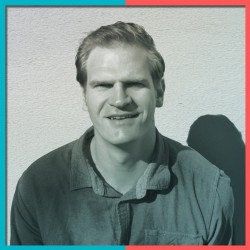
"Did Poetry Cause the Civil War?"
UNITED WE STAND SPEAKERS AVAILABLE THROUGH AUGUST 31ST!
1 Mar 2024
The “United We Stand” speakers are available to book through the end of August!
The National Endowment of the Humanities, in cooperation with the White House, launched the initiative “United We Stand: Connecting Through Culture” to stem the nationwide increase of domestic extremism and hate-motivated violence.
One way NMHC is addressing the goals of the “United We Stand” initiative is through a “special edition” catalog of speakers separate from our regular Speakers Bureau. The goal of this special catalog is to provide New Mexico communities–especially rural and underserved communities–with the opportunity to learn about the components of hate-motivated violence and the importance of cross-cultural understanding. Program topics include first hand stories of living in New Mexico’s Japanese internment camps, how comic books reflect and challenge American culture, poetry’s influence on the Civil War, an in depth look at the challenges faced by Filipino immigrants to New Mexico, and even a frank and balanced discussion on gun violence and legislation. By booking or attending these talks, New Mexico residents can learn and grow together.
To find the United We Stand Speakers go to the Speakers Bureau Catalog, click "Browse Programs", and select "United We Stand" under the series filter.
MEET THE SPEAKERS: DARRYL WELLINGTON, LYNN CLINE, AND FRED FRIEDMAN
1 Mar 2024
The Speakers Bureau has nearly thirty presenters and forty programs to choose from! With so many options, finding the right program for your organization can be a bit overwhelming. Let NMHC re-introduce you to some of our Speakers! Learn more and book here: Speakers Bureau Catalog.
Darryl Wellington is the 2021-2023 Poet Laureate of Santa Fe, N.M. His full-length first book is Psalms at the Present Time.
In Darryl's Speakers Bureau program “The Power of Indignation: Richard Wright, Black American Novelist,” Darryl recreates Wright's final days, looking back on his career, while delivering a lecture to an American audience in Paris. Richard Wright (1908-1960), the author of the novel Native Son (1940) and the autobiography Black Boy (1945) pioneered an influential school of protest literature. He became the first Black writer to pen a bestseller that overtly criticized racism and white supremacy. Born into dire poverty and oppression in segregated Mississippi, his journey to international success was unlikely. Following his success, Wright grew disillusioned with the United States, and, in 1947, relocated to France. Before his death in 1960, at age 52, he coined the phrase "Black Power" in support of African anti-colonial revolutions.
Lynn Cline is the award-winning author of “The Maverick Cookbook: Iconic Recipes and Tales from New Mexico” and “Literary Pilgrims: The Santa Fe and Taos Writers’ Colonies, 1917-1950.”
Lynn's Speakers Bureau Program “The Foodways of New Mexico” covers New Mexico's rich culinary history, full of fascinating food traditions representing diverse cultures across the centuries. Ancestral Puebloan people, Spanish settlers and miners, cowboys and ranchers as well as pioneers along the Santa Fe Trail, railroad passengers and many others have all contributed New Mexico's melting pot. The Foodways of New Mexico program introduces the many cultures that have shaped our culinary history along with the iconic people who've stirred the pot, including Doña Tules , Fred Harvey, Billy the Kid, Georgia O'Keeffe and the contemporary farmers, chefs and restaurateurs who continually cook up new ways to evolve our food traditions.
Fred Friedman holds a masters degree in U.S. History and English Literature, plus an extensive & practical understanding of the New Mexico's territorial and state railroading past. This includes supervising the New Mexico Railroad Bureau for thirty years, developing a railroad history narrative for the traveling Van of Enchantment on behalf of the NM Tourism Department, and in 2018 he was recognized by the New Mexico State Historians Office as a State History Scholar.
Fred’s Speakers Bureau Program “New Mexico’s Railroads: From Territory and Statehood to the Present” explores the history of transportation in the state. Railroads were the "Space Program" of the 1880's and New Mexico was a proving ground. The arrival of the Iron Steed changed everything from legislation to architecture. Amtrak, the Union Pacific and several smaller systems continue as major economic generators throughout the Land of Enchantment. Most towns in this state began as railroad communities, and their physical reminders, in the form of alignments, structures and vacant depots, have often been reinvented as civic buildings, hiking and biking trails. The state's railroading legacy continues as tourist systems and new freight opportunities emerge throughout New Mexico.
NMHC BOARD OF DIRECTORS WELCOMES NEW CHAIR AND VICE CHAIR
1 Feb 2024
There is a changing of the guard, and the New Mexico Humanities Council is honored to welcome its new board leadership. Miriam Langer and Fabian E. Sisneros will serve in their new positions as Chair and Vice Chair and will undoubtedly guide and enrich the organization. Their commitment to expanding accessibility of our programs and serving our diverse state ensures that the NMHC will continue to make a meaningful impact in the humanities and the communities we serve. Please join us as we welcome them to their newly elected roles. Elva Osterreich will remain as Treasurer as will Maressa Thompson as Secretary.
Newly elected chair: Miriam Langer
Happy 2024 to all! I’m pleased to introduce myself as the new NMHC Board Chair. I have served as a board member since 2019 and stepped into the role of Vice Chair in 2022. With the previous Chair’s term having ended, here I am! Thank you so much to Arif Khan for demonstrating what an effective, supportive, NMHC Board Chair can be. I miss you already.
In my four years as an NMHC Board member, my primary contribution has been as a member of the grants committee. In my 20-plus years as a faculty member at New Mexico Highlands University in Las Vegas, I’ve applied for many grants — from funders small and large. I’ve written grants for building projects, for general support, to fund our internship program, for programming and exhibits. Serving on the grants committee for NMHC gave me the incredible opportunity to be on the other side, reviewing applications from around New Mexico. We have awarded funds to humanities programs in rural communities, on tribal lands, and in N.M.’s population centers. During Covid, we were able to distribute additional federal funds through the CARES act, which meant sending almost $500,000 out to N.M. organizations to help deliver programs during and after the lockdown period. The joy of awarding funding is (almost) better than receiving it!
As Chair, grants remain my focus. I hope to work closely with the grant/program officers to bring in new applicants and discover ways to make the application and expensing process more accessible. I know, as someone working in a small department in a rural institution, how we weigh the time spent writing a grant application vs. the odds of being funded.
The NMHC staff always impresses me with their knowledge, commitment to the humanities, and efforts at inclusion. I hope they will share their expertise with me as we move in to the new year together.
If you’d like to contact me with ideas and thoughts, please email me at melanger@nmhu.edu.
Newly elected vice chair: Fabian E. Sisneros
The initial draw to NMHC began with a simple invitation by a previous board member. So it is more accurate to say that it is not what I was drawn to, but rather to speak of who it was that drew me to NMHC. This is an important distinction to make. When I consider the mission of the NMHC, it is incumbent on me to remember that my involvement with NMHC began with a relationship with others in my local arts community. As a board member, I will do my best to remember that a council dedicated to the humanities must be engaged with the communities it serves.






